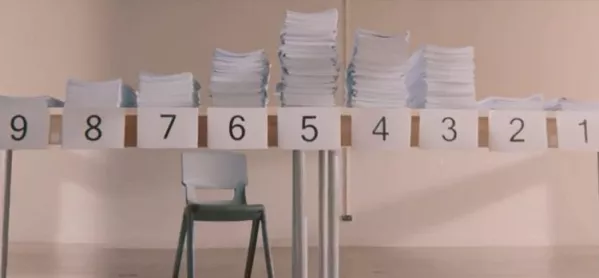I was a part of the “guinea pig” year: the year in which the grading for GCSEs changed from A*-U, to 9-1. When I was told about the GCSE reforms, I felt an immediate rush of anxiety. When we asked what the reason for the change was, our teachers told us that “too many students are getting good grades and passing with flying colours”. These are words that no student wants to hear.
Luckily for me, the reforms only affected my maths and English exams. For pupils in Year 11 this year, 18 other subjects - including geography, French and religious studies - will have reformed exams. But as we were the first year (and given the importance of maths and English), the pressure was still on - not just for the students, but also for our poor teachers who were learning the new system alongside us.
The changes were a shock and there was so much uncertainty - the sheer workload itself had become so vast and it concentrated on certain topics, so tackling that was a challenge in itself. I couldn’t believe how much we had to do.
For English literature, we had to memorise two whole plays (Shakespeare’s Macbeth and An Inspector Calls by JB Priestley), as well as a whole novel (Dickens’ Great Expectations) and an anthology of 15 poems. Plus we had to prepare for unseen poetry, too. It was daunting, and a struggle for us all: I wouldn’t have been able to get through it without the help and motivational support of my incredible English teacher.
However, when it came down to it, I knew it was my exam to either pass or fail. I remember spending countless hours making revision notes and condensing pages of words. Many of us couldn’t cope with the realities of the new exams, and as D-day approached, it was almost torturous.
Teachers ‘forced to teach to the test’
It felt like our whole lives depended on just a few exams, and our teachers, too, voiced their concerns on the extensive load of pressure they were receiving. For them, it quickly became a case of making sure everyone in their class passed the test, rather than actually teaching their subjects and studying the wonders of our language.
For the English language exam, there were two papers, four sections, and we had nowhere near enough time to complete them. And if English was tough, then the maths exam was practically impossible. We had practice papers, but only a few, and no one knew what to expect. Fear of the unknown grew, and teachers began setting the highest possible grade boundaries, and marked very harshly so that we would expect the worst. But these papers would come back with shocking grades, and morale fell quickly.
For those students who had always performed better in coursework, the reforms were particularly challenging, and during the long summer break and the wait for results, they had little idea what the future held.
It’s been almost a year now and GCSEs are a distant memory for many of us. Looking back, whilst yes, the experience was complex, stressful and unnerving, I can say it was worth it. We very quickly became more invested in our education than ever before - when you work so hard for something, you really want to do well, and continue to achieve.
Ava Ghorbani is an A-level student at Maria Fidelis Sixth Form in central London

